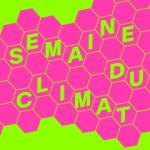More and More and More: An All-Consuming History of Energy
It is customary to think of our relationship with energy as one of transition: wood being replaced by coal, coal by oil, oil by nuclear and then all by green sources. Far from the industrial era having undergone a series of transformations, each new phase has remained almost totally intertwined with the previous one, so the very idea of transition is proving to be misguided.
Jean-Baptiste Fressoz will share his concerns about the need for a green transition and show how our industrial history has been based on a symbiosis, with each major energy source feeding off the others. Drawing on a wide range of examples, Jean-Baptiste Fressoz will describe how we have ‘gorged’ ourselves on all forms of energy - with whole forests needed to underpin coal mines, coal remaining central to the creation of countless new products and oil still central to our lives. “Transition” was originally promoted by the energy companies, not as a real plan but as a means of delaying any significant change.This conference will be an opportunity to understand the modern world and the true nature of the challenges that lie ahead.
Jean-Baptiste Fressoz is a research fellow at the CNRS. His research focuses on environmental history, the history of climate knowledge and the Anthropocene. He also writes a monthly column for Le Monde. His latest book “Sans transition, une nouvelle histoire de l'énergie” was published in January 2024.
This discussion will be moderated in French and English by Alice Pirlot, Assistant Professor of International Law.
Participants with a passive understanding of French are encouraged to attend as the author also speaks English.
This conference is organised by the Institute's Sustainability Initiative, in partnership with the City of Geneva, the Hoffmann Centre for Global Sustainability, the Forum on Trade, Environment & the SDGs (TESS) and the Student Environmental Committee.
A cocktail reception will follow the conference.
* * * * * * * * *
Il est d'usage de considérer notre relation avec l’énergie comme une relation de transition : le bois étant remplacé par le charbon, le charbon par le pétrole, le pétrole par le nucléaire puis le tout par des énergies vertes. Loin de l’ère industrielle ayant connu une série de transformations, chaque nouvelle phase est restée presque totalement intriquée avec la précédente alors que l’idée même de transition s’avère erronée.
Jean-Baptiste Fressoz partagera son inquiétude quant à la nécessité d'une transition verte et montrera comment notre histoire industrielle a été basée sur une symbiose, chaque source d’énergie majeure se nourrissant des autres. S'appuyant sur un large éventail d’exemples, Jean-Baptiste Fressoz décrira comment nous nous sommes « gavés » de toutes les formes d’énergie – avec des forêts entières nécessaires pour étayer les mines de charbon, le charbon restant au cœur de la création d’innombrables nouveaux produits et le pétrole étant toujours au centre de nos vies. La « transition » a été promue à l'origine par les sociétés énergétiques, non pas comme un véritable plan mais comme un moyen de retarder tout changement significatif.
Cette conférence sera l’occasion de comprendre le monde moderne et la véritable nature des défis qui nous attendent.
Jean-Baptiste Fressoz est chargé de recherche au CNRS. Ses recherches portent sur l'histoire environnementale, l'histoire des savoirs climatiques et l'Anthropocène. Il tient également une chronique mensuelle dans Le Monde. Son dernier ouvrage “Sans transition, une nouvelle histoire de l’énergie » est paru en janvier 2024.
La discussion sera modérée en français et en anglais par Alice Pirlot, professeure assistante de droit international.
Les participants qui ont une compréhension passive du français sont encouragés à venir car l’auteur s’exprime aussi en anglais.
Cette conférence est organisée par l’Initiative Durabilité de l’Institut, en partenariat avec la Ville de Genève, le Hoffmann Centre for Global Sustainability, le Forum on Trade, Environment & the SDGs (TESS) et le Comité étudiant environnemental.
Un cocktail suivra la conférence.

![]()




